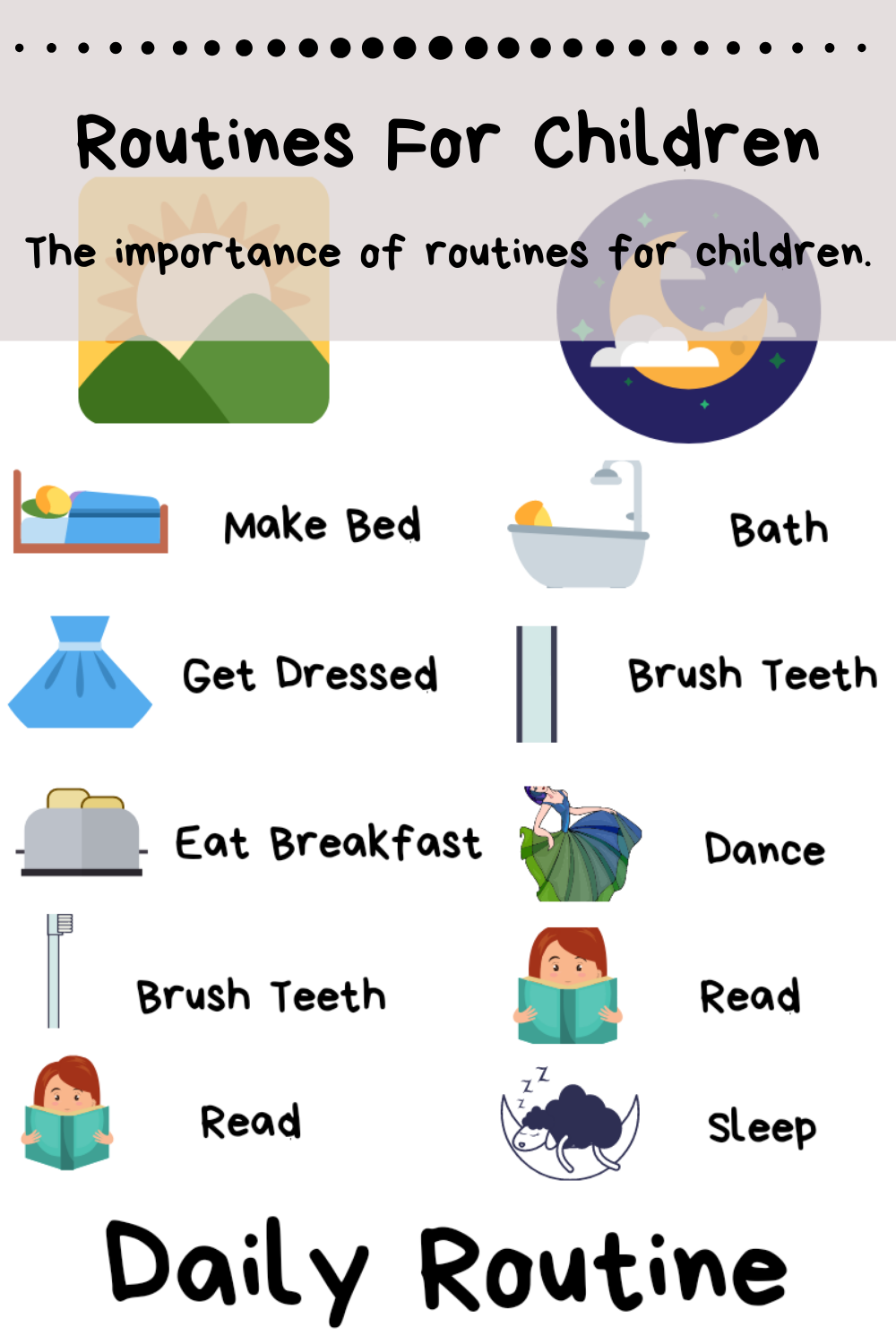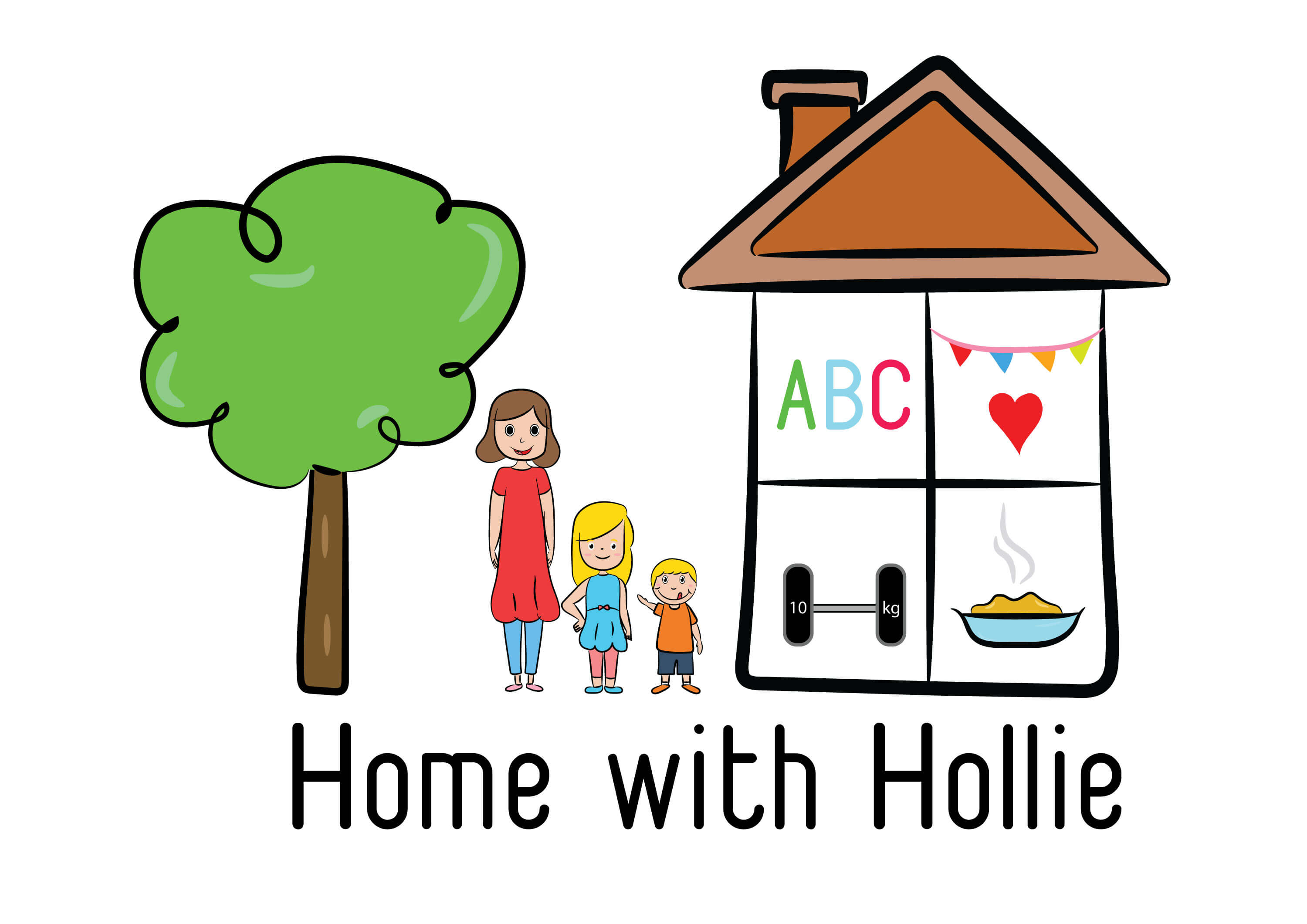
Sharing is caring!
Routines are good for almost everyone, but children benefit the most from a bit of structure. Regardless of whether or not kids are at school, homeschooled, or preschool age they need to know what to expect throughout their day. You should keep the importance of routines for children in mind when deciding how to structure your family’s life.
The importance of routines for children
Disclaimer: This blog post contains affiliate links. If you use them, I might be rewarded credit or a commission of the sale. Please note that I only recommend tools that I personally use and love and I always have my readers’ best interests at heart.
Think about how the world looks to a child. Almost everything is still unknown, their bodies keep changing, and they have no control over most of their lives. Children aren’t great at keeping schedules, looking at a calendar, or even knowing when lunchtime is. Routines serve as the daily structure for kids’ lives.
Your family’s routine’s structure should be a combination of rigid and flexible. There are some things you need to do on a schedule, other things that can be adjusted. For example, soccer practice might always be at 6pm (rigid) but homework time comes after dinner (still a routine, but flexible in timing).
Some parts of the routine are also more necessary than others. Skipping bath night isn’t going to mess up your whole routine but pushing back bedtime might. If you’re new to setting a routine it will take some experimenting to find what works and what doesn’t for your family.
When should you start routines for children?
You can start right from birth but it’s also never too late to start. Of course, you’ll have an easier time establishing a new routine with a newborn than an older child (so adjust your expectations accordingly).
For babies, start with something simple. A bath (or wipe down) followed by quiet time in the evenings is the beginning of a bedtime routine. Continue to develop and add routines as the baby gets older. Keep changing them as their needs change.
Stick to simple routines, though. Strict schedules aren’t great for kids of any age but they’re especially ineffective for newborns.
Routines tell children what to expect
When kids know what their day is going to look like they’ll feel less concerned with the unknown. If children never know who will pick them up from activities, who will put them to bed, or where they’ll be for the day they might feel insecure in their environment. This can lead to anxiety and attachment disorders.
After a routine is established, even young children will naturally comply. This means that chores and other less fun parts of the day get accomplished without a fight. For example, if we always brush our teeth after breakfast kids see that as the normal way things are and won’t challenge it as often.
Routines help kids develop independence
As kids grow their desire to do things on their own will only get stronger. Having a constant routine can be a lifesaver as you move into the more independent years because children will naturally start doing established routines on their own.
When kids start doing parts of their routine without being prompted it won’t just make your life easier, they’ll also be proud of themselves. Offer plenty of praise and encouragement! Rather than things being a fight kids will be empowered by their routine because they will know what’s expected of them.
Teaches time management skills
If your child lives a life of spontaneity it will be a lot more difficult to teach them time management skills later. As adults, we can’t do whatever we want and we don’t have unlimited time to complete each task because there are other matters to attend to.
Telling a child ‘you have 15 minutes to read your book’ doesn’t mean a lot. But if you have a routine established, ‘there’s 15 minutes left of free time before dinner time’ helps younger kids better understand their daily schedule.
Routines for children can build anticipation
Whether you have fun things as a regular part of your routine (like an afternoon trip to the playground or weekend family outings) or you have something else planned, routines can help kids anticipate what’s coming up. By laying the groundwork through your daily routine, they’ll have a better grasp on what’s ahead.
It also means that you will get less nagging from kids for certain activities. If you always play outside in the afternoon, for example, kids will eventually learn not to request that activity until after lunch.
Your routine provides stability during stressful times
Life isn’t always easy or perfect. Big changes are especially disruptive for younger kids who can’t grasp what’s going on. Some examples of these are moving, a death in the family, or the birth of a new baby.
If you have an established routine sticking to it (as best as you can) can help give kids a sense of stability during these times of stress. Even when other things seem scary, they’ll at least have security knowing what to expect.
Breaking the routine is a lot more fun
If you always let your kids stay up late then a vacation with late nights doesn’t seem so special. Although it’s important to stick to your family’s routine on a general basis, it’s also fun to break routine every now and then. But you have to have a routine to break in the first place!
One way to lessen the backslide this will have on your routine when you return to ‘normal’ is by prepping kids beforehand. Explain that it’s a special occasion or something you only do while on vacation. Once you return home be patient and give kids time to adjust back into your regular schedule.
Stay flexible and don’t over schedule
A routine is meant to give your and your children some control and stability in life – not control you! Small changes to your routine won’t mess everything up in the long run. Likewise, one bad day won’t undo all your hard work.
You also shouldn’t schedule out every second of your day. Overscheduling kids will actually have the opposite effect. Overscheduled children end up more anxious, stressed, and less able to cope as they grow up.
Keep adjusting
Although your basic routines will likely not change a whole lot, the specifics will need regular tweaking. Everything from kids growing older to a new baby in the house can throw routines into chaos. Given the importance of routines for children, changing routines to adapt to your family’s changing needs is better than dropping them entirely.
What do you love about routines? I would love to hear in the comments!
Related Posts
Bedtime Routines Prevent Bedtime Battles
For anybody that knows me, they know my eldest child DOES NOT SLEEP! No…
March 12, 2020
